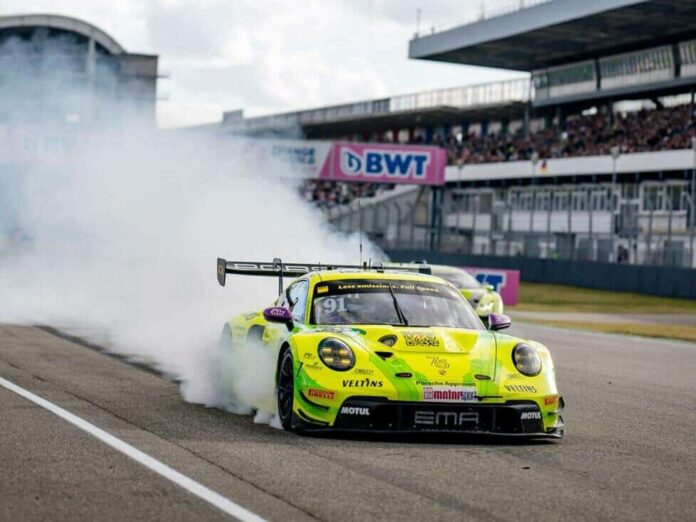Ralf Schumacher calls on the ADAC to introduce a synthetic fuel: What the problem is and why they are sticking with 50 percent sustainable fuel
The ADAC will continue to use Shell fuel in the DTM in 2024, which is made from 50 percent sustainable components and was first used in the ADAC GT Masters in 2022. But why not switch to a 100 percent synthetic fuel?
“I think it would be a signal that German motorsport – including the ADAC – could send out,” said former DTM driver Ralf Schumacher, calling for further development instead of “the umpteenth year of racing on fuel with an organic content”. “Initially, that was the first important and correct step, but by 2024 it will no longer even be a ‘nice to have’ and no comparison to e-fuels.”
According to Schumacher, these would not only be available, but also immediately usable: as one of the largest e-fuels manufacturers, Aramco guarantees that its product is “not only produced in a CO2-neutral way”, but also “supplied in sufficient quantities.”
Synthetic fuel: no agreement with Aramco
According to the ADAC, there have indeed been talks between the automobile club and Aramco about the use of a fully synthetic e-fuel on the DTM platform. However, the Saudi Arabian manufacturer was unable to meet the capacities for the fuel in question, which is why no agreement was reached.
How does the ADAC justify the decision to stick with the previous fuel? “Our fuel is currently 50 percent sustainable. Of course, the aim would be to have a fully synthetic fuel as soon as possible – and not a biofuel, as is currently used in the WEC and WRC”,
“Nobody is in a position to supply the required quantity “
Explanation: While synthetic fuels are produced from water and carbon dioxide by means of an artificial process using electricity, biological fuels are obtained from plants – in the case of WEC fuel, for example, from wine residues from French agriculture. The WRC and the IndyCar series also use fuels with a biofuel content.
“For me, it only makes sense if we get a completely synthetic fuel like the one produced by Porsche in Chile,” says Voss. “But the problem is that we would need 300,000 to 350,000 liters per season on the DTM platform alone. And nobody is in a position to supply us with the required quantity. So I hope that we will be able to do it by 2025. We have a lot of discussions, that would be the first step. “
ADAC: What speaks against biofuels
Why is it not attractive for Voss to rely on a 100 percent biological fuel as a transitional solution, as in the World Endurance Championship, despite some offers? “If there are large quantities of these biological fuels in normal road traffic at some point, then we are talking about monocultures and people who have nothing to eat because cereals are turned into fuel,” he explains.
According to Voss, this is a discussion that the ADAC should not be having. Therefore, it is better to wait until a fully synthetic fuel is “affordable and available in sufficient quantities”.
Although the products used in other series are second-generation biofuels, which are not obtained from potential foodstuffs as in the first generation, but from plant waste as in the DTM fuel, the GT3 cars must also meet the filling station standard. This speaks in favor of the Shell fuel, 50 percent of which is based on the Blue Gasoline 95 filling station fuel.
According to Voss, one problem with synthetic fuels in general is that there is currently no standard, i.e. no seal of quality. “As a result, you currently get very different qualities of e-fuels,” explains the ADAC Head of Motorsport. “It would be fatal if a different quality of fuel was supplied for every race and this resulted in damage of some kind. “







